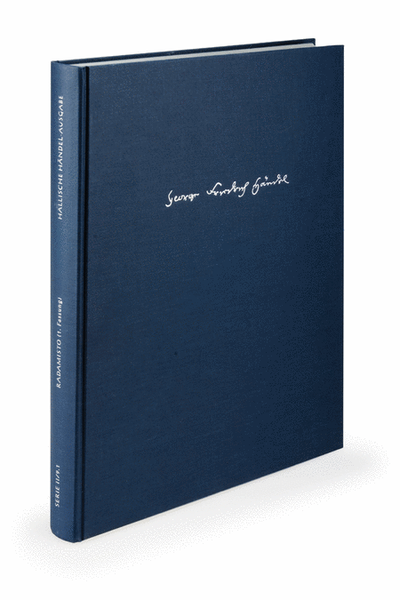Musikalische Früherziehung "Tina und Tobi". Anwesenheitsmarken 4
-
Ships in 1 to 2 weeks
Details
Description
SKU: BA.BE04004-20
Edited by Verband deutscher Musikschulen e. V. Single sheet. Musikalische Fruherziehung "Tina und Tobi". Neufassung 2003/2004. Accessories. 1 pages. Gustav Bosse Verlag #BE04004-20. Published by Gustav Bosse Verlag (BA.BE04004-20).ISBN 9790201198842. 21 x 26.8 cm inches.
In quite characteristic fashion for the times, Handel's opera"Alessandro"looks at various episodes in the life and rule of Alexander the Great (356 323 BC). This legendary warrior and military commander conquered large parts of the world before meeting an untimely end at the age of 32. A central conflict in Handel's opera is Alessandro being in love with two women, Lisaura and Rossane, who compete for his favour. In addition, his claim to be of divine parentage is underlined, occasioning him to demand the subservience of his followers, which meets with vigorous disapproval.
Handel composed"Alessandro"for the Royal Academy of Music to a libretto by Paolo Antonio Rolli in the 1725/26 season. The work was premiered at the King's Theatre in London on 5 May 1726."Alessandro"was the first of five operas for the Royal Academy, operas which saw Handel compose for three of the most famous singers of his time: Francesco Bernardi (called Senesino) Francesca Cuzzoni and Faustina Bordoni.
Ortensio Mauro's libretto"La superbia d'Alessandro,"which was performed for the first time in Hanover in 1690 in a musical setting by Agostino Steffani and staged again in the city the following year under the title"Il zelo di Leonato"but with numerous alterations, served as the source text for Handel's"Alessandro". One of the main aspects Rolli had to consider when preparing the libretto for the London performances was to keep the roles of the famous singers of the Royal Academy well balanced, yet at the same time to engineer a musical contest between the prima donnas Cuzzoni and Bordoni (Lisaura and Rossane) as well. From a business point of view, it made good sense, for such rivalry would surely increase public interest in the opera.
It is no longer possible to ascertain which changes Handel made during the following performance series of the 1727/28 season. For the performance series of 1732/33, Handel made substantial revisions to the opera: six numbers were deleted in their entirety, the finale in part as well, and the recitatives were made much shorter, with the parts of Cleone and Leonato omitted completely; Handel gave their contributions to other stage characters or simply left them out. He also had three arias transposed one tone higher for the new singers. It is in fact conceivable that some of the 1732 changes were actually undertaken for the revival of 1727/28.
The main part of the edition is given over to the version of the opera used for the first performances in 1726. A detailed genesis of the opera based on the current state of research, and a comparison of the 1726 and 1732 versions are included in both German and English. In the appendices, the editor Richard G. King has reconstructed discarded early versions, arias added during the first performance series to replace arias nos. 6 and 32, and also the version of the 1732 performances.

 Share
Share